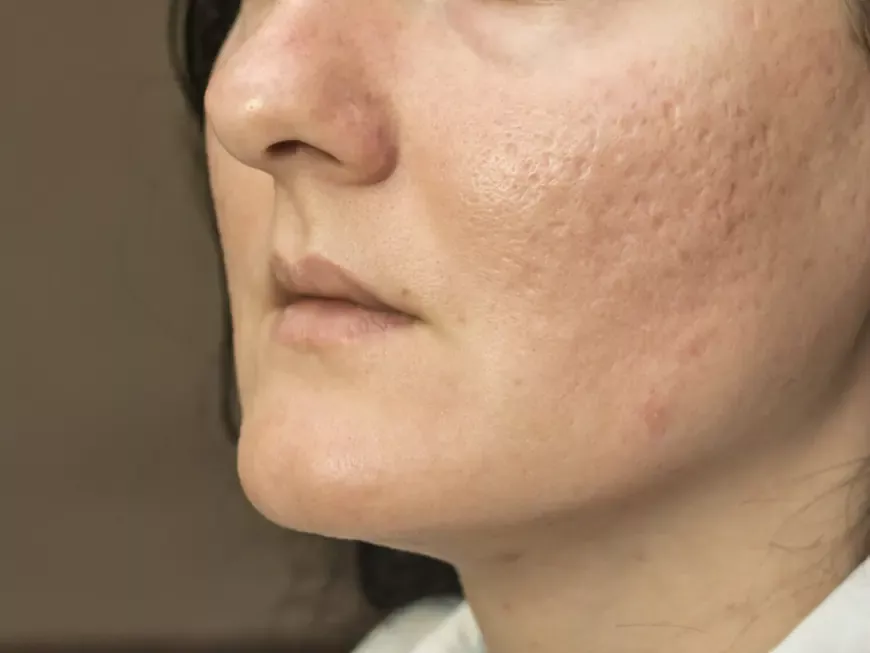Is Laser Scar Removal suitable for dark skin tones?

Laser scar removal has emerged as a popular treatment option for individuals looking to reduce the appearance of scars. Whether these scars are from acne, injury, or surgery, many people are turning to laser therapy for a smoother and more even skin surface. However, when it comes to people with dark skin tones, there are concerns about how effective and safe laser treatments may be. In this article, we will explore whether laser scar removal is suitable for dark skin tones and how different factors play a role in the treatment’s success. Let’s delve into Laser Scar Removal in Dubai.
Understanding the Concerns for Dark Skin Tones
One of the primary concerns for individuals with dark skin tones considering laser treatments is the risk of hyperpigmentation or hypopigmentation. Dark skin contains higher levels of melanin, the pigment responsible for skin color. This increased melanin can cause the skin to react differently to laser energy compared to lighter skin tones. While laser technology has advanced significantly, these differences must be taken into account to ensure the best outcomes.
In darker skin tones, the risk of post-inflammatory hyperpigmentation (PIH) is higher after laser treatments. PIH occurs when the skin becomes darker than usual in areas where the laser has been applied. This condition can be particularly distressing, as it may leave behind visible patches that are more prominent than the original scars. Conversely, hypopigmentation, where the skin lightens in response to the laser, is another concern. This condition can also be a long-lasting effect of the treatment.
Is Laser Scar Removal Safe for Dark Skin?
The safety of laser scar removal for dark skin depends on several factors, including the type of laser used, the skill of the practitioner, and the specific skin condition being treated. It is essential to choose a laser treatment that is appropriate for darker skin tones. Some lasers are more suitable for individuals with darker complexions than others.
For instance, non-ablative lasers like the Nd:YAG laser have shown to be effective for dark skin tones. These lasers work by penetrating the deeper layers of the skin without damaging the surface layer, which reduces the risk of hyperpigmentation. The laser's wavelength allows it to target scar tissue without harming the surrounding healthy skin. This makes it a safer and more effective option for people with darker skin.
In contrast, ablative lasers, which work by removing the top layers of skin to promote new skin growth, can be riskier for dark skin tones. These lasers tend to increase the chances of side effects such as hyperpigmentation and scarring. Therefore, it is essential for individuals with dark skin to consult a qualified dermatologist or practitioner who can recommend the most appropriate laser treatment.
Choosing the Right Laser Treatment for Dark Skin
When considering laser scar removal, selecting the right type of laser is crucial. There are various types of lasers available, and not all are suitable for dark skin tones. One of the safest and most effective lasers for darker skin is the Fractional CO2 laser. This laser targets specific areas of scar tissue and stimulates collagen production to improve the skin's appearance. Although it is more invasive than non-ablative lasers, when used correctly by an experienced practitioner, it can provide positive results with minimal risk of pigmentation changes.
Another commonly used laser for dark skin is the Fractional Erbium YAG laser. It is less aggressive than CO2 lasers, making it a preferred choice for people with darker skin tones. This laser is effective in treating acne scars, surgical scars, and stretch marks by encouraging the skin to regenerate without causing excessive damage to the surrounding tissue.
It's important to note that the effectiveness of laser treatments may vary depending on the type of scar being treated. Keloid scars, which are more common in darker skin, can be more challenging to treat with lasers. In some cases, a combination of treatments may be recommended to achieve the best results.
Consulting a Qualified Practitioner
If you have dark skin and are considering laser scar removal, it is essential to consult a qualified dermatologist or laser practitioner with experience in treating dark skin tones. A skilled professional can assess your skin type, the severity of your scars, and recommend the most appropriate treatment plan for you.
During the consultation, the practitioner should discuss the potential risks and benefits of laser therapy. They should also examine your skin to determine the best laser settings and ensure that the treatment will not cause adverse effects such as pigmentation changes or scarring. It is crucial to trust a practitioner who understands the unique needs of dark skin and is capable of tailoring the treatment to suit your individual skin type.
Post-Treatment Care for Dark Skin Tones
After undergoing laser scar removal, proper aftercare is crucial to ensure optimal results and minimize the risk of complications. This includes following a skincare routine that protects the skin from sun exposure, as UV rays can trigger hyperpigmentation. Using sunscreen with a high SPF is essential, even if you are not directly in the sun, as incidental exposure can still cause damage.
Additionally, moisturizing the skin and avoiding harsh chemicals or exfoliating products can help prevent irritation and promote healing. It is also important to follow the practitioner’s instructions regarding any prescribed creams or medications that may help reduce inflammation or pigmentation issues.
Conclusion
Laser scar removal can be a suitable option for people with dark skin tones, provided the right laser technology is used and the treatment is performed by an experienced practitioner. Non-ablative lasers like the Nd:YAG laser and fractional lasers tend to be safer and more effective for dark skin, reducing the risk of side effects such as hyperpigmentation and hypopigmentation. With proper consultation, treatment, and aftercare, individuals with dark skin can achieve improved skin texture and a reduction in the appearance of scars.












